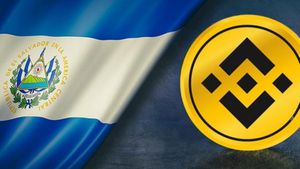JAKARTA - The Association of Nigerian Bureaux De Change Operators (ABCON) has filed a call to the Nigerian government to ban the operations of Binance, a leading crypto exchange, as it is seen as aggravating tensions on the local currency, the Naira. This news was revealed through a report by local media outlet The Cable.
ABCON President, Alhaji Aminu Gwadebe, expressed his view that Binance has become a central point in the official and parallel market of Naira to the US Dollar. He highlighted Binance's role in increasing the pressure on the Naira currency, calling the exchange a highly liquid market.
"As I speak, Binance is the most liquid market. They do 1.2 million transactions per second. So it's a very liquid market but it's not a scary status, we can break it through our content and local uniqueness," said Gwadebe quoted from Cryptoslate.
He added, "We have to do something to stop Binance. This is competition; we have to ban Binance and the only way to do that is if we have liquidity."
また読む:
For your information, in June, the Central Bank of Nigeria took steps to unify the foreign exchange (FX) market segment, ending its tight control of the local currency. However, this move failed to relieve pressure on the Naira, which was devalued by more than 900 Naira per 1 US dollar in the parallel market. Meanwhile, the currency is trading at around 768 Naira per 1 US dollar on the official market, according to data from the country's bank's website.
Binance, as one of the most popular crypto platforms in Nigeria, has managed to maintain its popularity through its peer-to-peer service, circumventing the ban on crypto trading imposed by the Central Bank of Nigeria in 2021. Despite the warnings from the Nigerian authorities that Binance's operations in the country is considered illegal.
Data on the platform shows that in the last 24 hours, the USDT/Naira trading pair on Binance has reached over 660,000 US dollars (equivalent to IDR 10 billion. This news highlights the tension between the development of the crypto industry and regulations in various countries, including Nigeria, which is trying to manage the economic and financial implications of the wider adoption of cryptocurrencies.
The English, Chinese, Japanese, Arabic, and French versions are automatically generated by the AI. So there may still be inaccuracies in translating, please always see Indonesian as our main language. (system supported by DigitalSiber.id)















